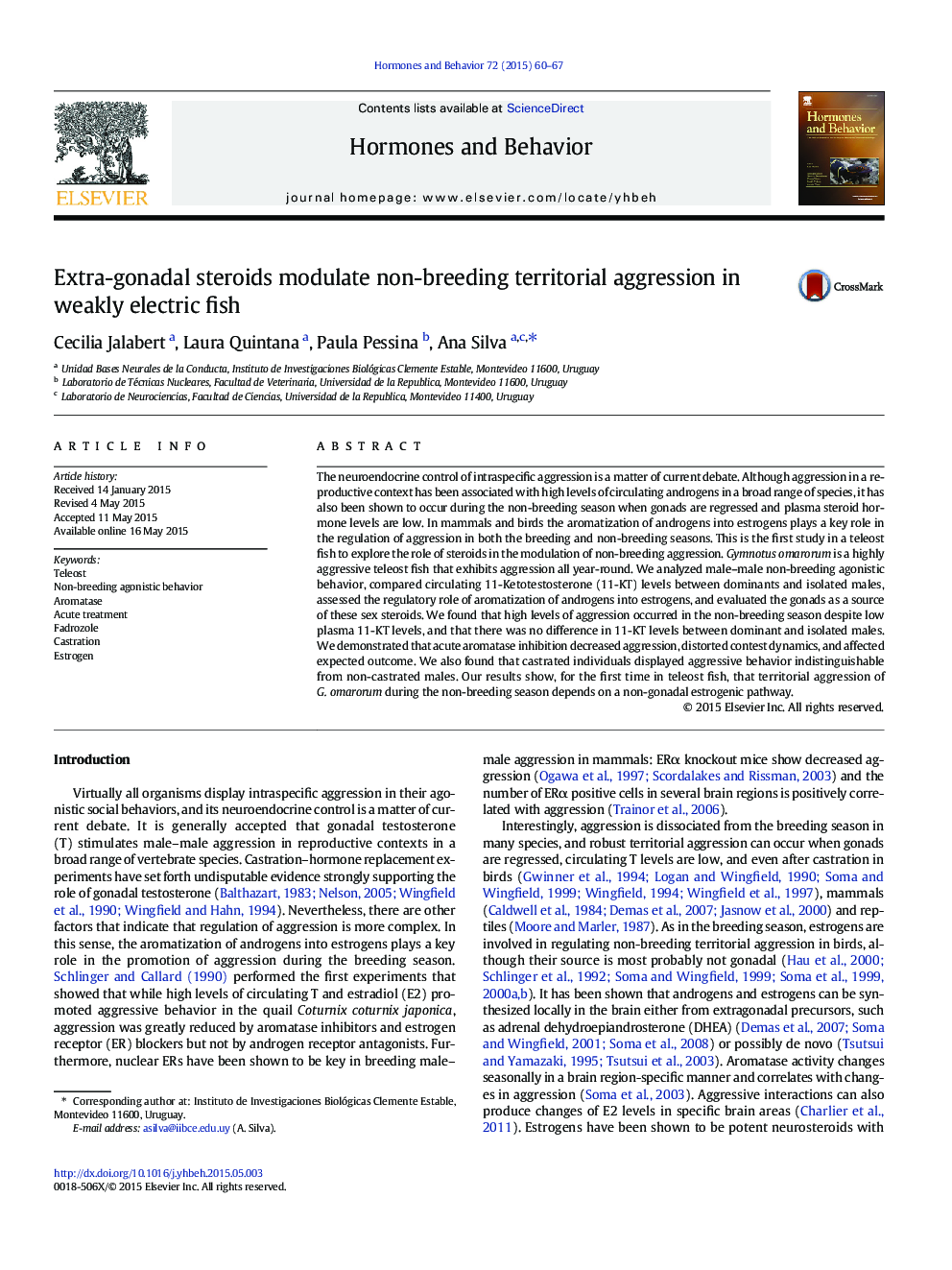| کد مقاله | کد نشریه | سال انتشار | مقاله انگلیسی | نسخه تمام متن |
|---|---|---|---|---|
| 323393 | 540634 | 2015 | 8 صفحه PDF | دانلود رایگان |
• We present a clear-cut example of non-breeding territorial aggression in teleosts.
• Aromatase inhibition reduces aggression and affects expected outcome in non-breeding.
• High levels of aggression occur despite low circulating 11-KT levels in non-breeding.
• Castration does not affect non-breeding territorial aggression.
The neuroendocrine control of intraspecific aggression is a matter of current debate. Although aggression in a reproductive context has been associated with high levels of circulating androgens in a broad range of species, it has also been shown to occur during the non-breeding season when gonads are regressed and plasma steroid hormone levels are low. In mammals and birds the aromatization of androgens into estrogens plays a key role in the regulation of aggression in both the breeding and non-breeding seasons. This is the first study in a teleost fish to explore the role of steroids in the modulation of non-breeding aggression. Gymnotus omarorum is a highly aggressive teleost fish that exhibits aggression all year-round. We analyzed male–male non-breeding agonistic behavior, compared circulating 11-Ketotestosterone (11-KT) levels between dominants and isolated males, assessed the regulatory role of aromatization of androgens into estrogens, and evaluated the gonads as a source of these sex steroids. We found that high levels of aggression occurred in the non-breeding season despite low plasma 11-KT levels, and that there was no difference in 11-KT levels between dominant and isolated males. We demonstrated that acute aromatase inhibition decreased aggression, distorted contest dynamics, and affected expected outcome. We also found that castrated individuals displayed aggressive behavior indistinguishable from non-castrated males. Our results show, for the first time in teleost fish, that territorial aggression of G. omarorum during the non-breeding season depends on a non-gonadal estrogenic pathway.
Journal: Hormones and Behavior - Volume 72, June 2015, Pages 60–67
